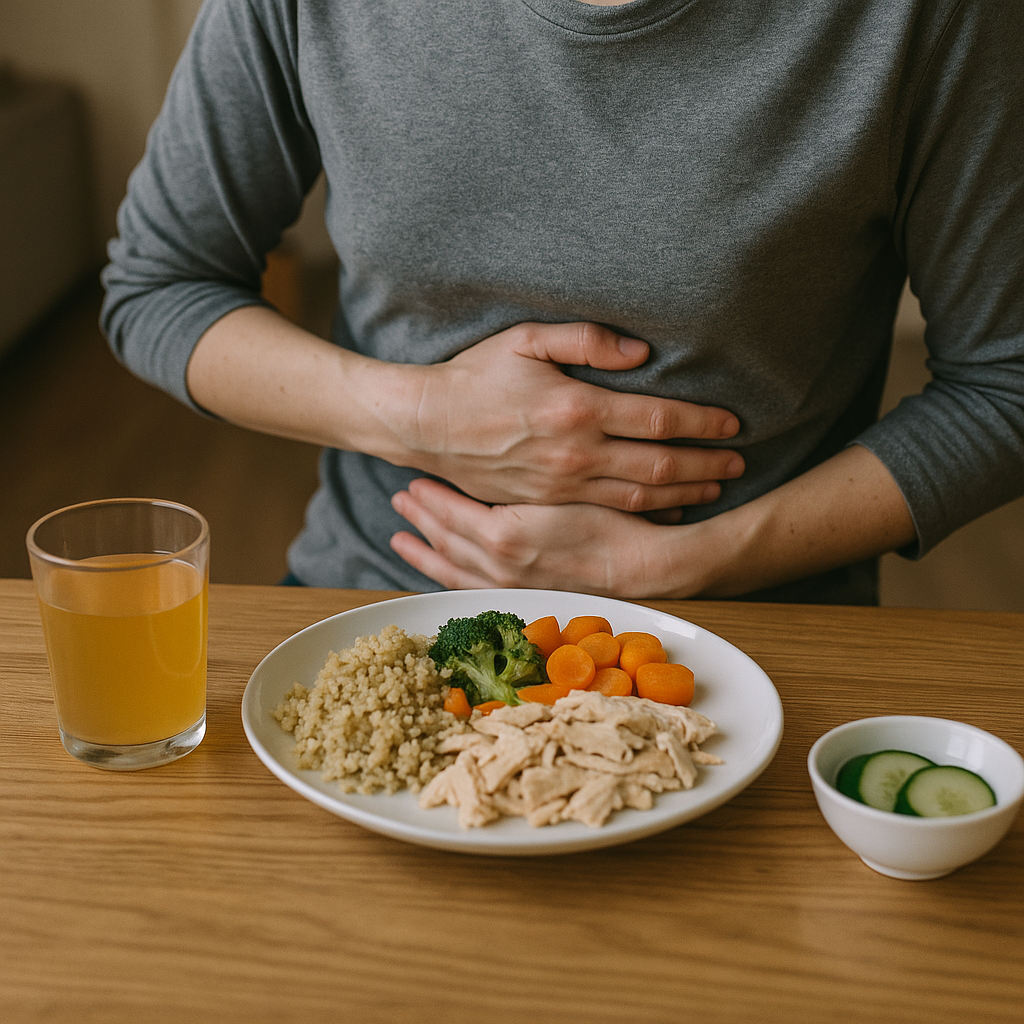आयुर्वेदिक डॉक्टर से प्रश्न पूछें और निःशुल्क या भुगतान मोड में अपनी चिंता की समस्या पर ऑनलाइन परामर्श प्राप्त करें। 2,000 से अधिक अनुभवी डॉक्टर हमारी साइट पर काम करते हैं और आपके प्रश्नों का इंतजार करते हैं और उपयोगकर्ताओं को उनकी स्वास्थ्य समस्याओं को हल करने में प्रतिदिन मदद करते हैं।
How to Cure IBS Permanently: Ayurvedic Approach to Digestive Relief

Are You Fed Up with Short-Term Solutions and Repeated IBS Flare-Ups?
Many patients spend countless hours researching how to properly treat IBS, only to be advised that it is a lifetime ailment. What if there was a more comprehensive, long-term answer based on ancient wisdom? Ayurveda, India's traditional system of medicine, takes a holistic approach to digestive health that goes beyond symptom care.
Rather than just asking, "Can IBS be cured permanently?" Ayurveda teaches us how to restore balance at the root level—mind, body, and spirit.
In this article, we'll look at how to permanently treat irritable bowel syndrome utilizing Ayurvedic principles. You will learn about the underlying imbalances that cause IBS, the best irritable bowel syndrome treatments from an Ayurvedic perspective, and how to live a gut-friendly lifestyle. We will also discuss important topics such as the irritable bowel syndrome diet and items that you should avoid.

स्वयं दवा न लें और प्रतीक्षा न करें। अभी डॉक्टर से चैट शुरू करें
What is Irritable Bowel Syndrome (IBS), and What Are Its Causes?
Irritable bowel syndrome (IBS) is a chronic gastrointestinal disorder. It includes symptoms such as bloating, abdominal pain, gas, cramps, and diarrhea, constipation, or a combination of the two.
Medical science explains it as a functional sickness, which suggests that diagnostic testing finds no structural abnormalities, regardless of the fact that the pain is real.
How Ayurveda Explains IBS as Grahani and Agni Imbalance
In Ayurveda, IBS is associated with Grahani, a disorder characterized by dysfunction of the small intestine and digestive fire (Agni). Agni is considered the sacred fire that regulates digestion and metabolism. When Agni becomes irregular, it leads to Ama (toxins), bloating, irregular feces, and tiredness.
Ayurveda does not isolate symptoms but sees IBS as a systemic issue rooted in imbalance. The goal is to restore Agni, cleanse the digestive tract, and rebalance the doshas—Vata, Pitta, and Kapha.
Vata, Pitta, or Kapha Dominance and IBS Symptoms
Each person has a unique constitution (Prakriti), and the manifestation of IBS symptoms will vary based on doshic imbalance:
-
Vata-type IBS: Gas, bloating, variable appetite, anxiety, constipation.
-
Pitta-type IBS: Burning sensation, acid reflux, diarrhea, irritability.
-
Kapha-type IBS: Heaviness, sluggish digestion, mucus in stool, lethargy.

Causes and Aggravators of IBS
Stress, Poor Digestion, and Irregular Eating
Modern life is fast, stressful, and filled with poor dietary habits—all of which directly contribute to IBS. Chronic stress can weaken Agni and dysregulate the gut-brain axis.
Foods That Trigger IBS and Weaken Agni
Common irritable bowel syndrome foods to avoid:
-
Cold or raw vegetables (e.g., cabbage, broccoli)
-
Carbonated drinks and artificial sweeteners
-
Excess caffeine and alcohol
-
Leftovers and refrigerated meals
Lifestyle Habits That Interrupt the Gut-Mind Connection
Factors such as poor sleep, lack of exercise, screen overload, and stress interfere with the gut-mind connection. Ayurveda stresses the importance of calming both body and mind for digestive healing.

How to Cure IBS Permanently with Ayurveda
Ayurveda doesn’t suppress symptoms—it addresses the root causes. It aims to:
-
Restore doshic balance
-
Strengthen Agni (digestive fire)
-
Eliminate Ama (toxins)
Herbal Treatments and Classical Formulations for Grahani
-
Kutaja – for diarrhea-dominant IBS
-
Bilva (Bael fruit) – improves sluggish digestion
-
Mustaka and Ativisha – detoxify and balance Vata
-
Triphala – regulates bowel movements
-
Takra (spiced buttermilk) – used in therapies like Takra-Siddha Basti
Daily Routine to Support Gut Healing and Restore Rhythm
Key components of Dinacharya (daily routine):
-
Wake by 6 a.m.
-
Perform Abhyanga (oil massage)
-
Drink warm water with ginger or cumin
-
Regular meal times
-
Avoid overeating and snacking
Ayurvedic Therapies Like Panchakarma and Basti
For chronic cases, Panchakarma is highly beneficial. Especially:
-
Anuvasana Basti – oil-based, nourishing
-
Niruha Basti – decoction-based, cleansing
Other therapies:
-
Shirodhara – calming for the mind
-
Takradhara – Pitta-pacifying

Irritable Bowel Syndrome Diet and Food Guidelines
Food is medicine in Ayurveda. Focus on digestion-friendly, dosha-balancing foods.
Irritable Bowel Syndrome Foods to Avoid Based on Dosha
-
Vata IBS: Avoid dry, raw, fermented foods
-
Pitta IBS: Avoid spicy, sour, and fried foods
-
Kapha IBS: Avoid sweet, heavy, and dairy-based foods
Nourishing, Gentle Foods That Rebuild Digestive Fire
-
Cooked vegetables (carrots, zucchini)
-
Mung dal khichadi
-
Rice porridge with Ayurvedic spices
-
Herbal teas (fennel, ajwain, coriander)
Mindful Eating and Proper Food Combining
Ayurvedic eating habits include:
-
No distractions while eating
-
Thorough chewing
-
Avoid incompatible combinations (e.g., fruit + dairy)
Conclusion
Healing from IBS doesn’t have to be a lifelong struggle. Ayurveda offers real, lasting solutions by addressing the root causes through personalized care, diet, herbs, and lifestyle changes.
It takes effort and consistency—but the outcome is a healthier, more balanced life.
FAQs
What’s the Role of Gut-Brain Balance in Managing IBS?
Mental stress directly impacts digestion. Practices like yoga, meditation, and Abhyanga help regulate the gut-brain connection—especially important for Vata-type IBS.
Which Herbs Are Best for Calming Vata- or Pitta-Related IBS?
For Vata:
-
Ashwagandha
-
Ginger
-
Trikatu
For Pitta:
-
Shatavari
-
Amalaki
-
Guduchi
How Long Does It Take to See Results from Ayurvedic Treatment?
-
1–2 weeks: Initial symptom relief
-
4–6 weeks: Significant improvement
-
3–6 months: Deeper, lasting transformation

